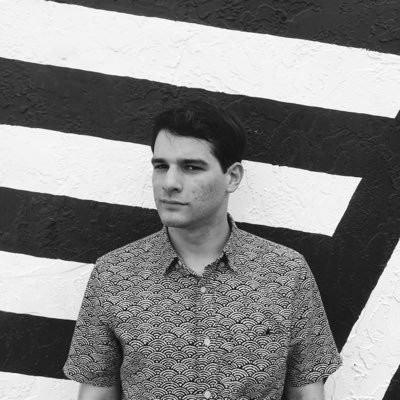"From the get-go, we've strived for Third Horizon to be seen as an organization, as a festival that celebrates great cinema, and for us, the cinema comes before everything else," says Jonathan Ali, Third Horizon's director of programming. "It has to be cinema that we consider formally interesting, even radical, cinema with a political consciousness to it. We're interested in cinema as an art form, which is using it to explore Caribbean identity or ways of being Caribbean. It's not merely about representation for the sake of representation."
Stones Have Laws, recently screened by the festival as part of a series at the Pérez Art Museum Miami, is an excellent example of Third Horizon's approach. Blending documentary with fiction, the film explores the past and present struggles of the slave-descended Maroon people of Suriname. It was made in a process of "collective scripting" between a Maroon community and a group of filmmakers from the Netherlands, which ruled the country as a colony until 1975. According to Ali, the film attempts to subvert traditional ethnographic films; Maroon rituals are re-enacted with an awareness toward the camera and its white gaze. "It's a film that's very aware of history and of the exploitation that the people of Suriname, the Maroons, have undergone, and their subsequent fight back and resistance against that history of enslavement and exploitation," he explains.
Although based in Miami, the festival's organization is spread across the Caribbean and its diaspora. Ali, for example, originally hails from Trinidad and Tobago and lives in London, home of one of the largest pan-Caribbean communities on Earth. Usually held annually, the festival took 2023 off, hosting screenings around town and New York to make up for the break. Later in October, it will screen the Cuban documentary Mafifa on Thursday, October 26, at the PAMM. It will also host a retrospective of Caribbean-French filmmaker Julius Amédée Laou, with the director in attendance, at Coral Gables Art Cinema on October 27 and 28.

Still from This is the Imagination of the Black Radical, directed by Rhea Storr
Third Horizon Film Festival photo
Describing itself as "a continuing series of important classic and contemporary films," Criterion has become a significant force in the world of film fandom. The label was founded in 1984 to release classic films on home video format — its first two editions were Citizen Kane and King Kong on LaserDisc — and since then, the company has become celebrated for its collectible, deluxe re-issues of cinematic greats from Hollywood hits to the canon of world cinema. A Criterion release is seen as the gold standard within the boutique Blu-ray market and usually comes packed with bonus features such as audio commentaries and documentaries.
This commitment to quality extends to its streaming business. The company launched the Criterion Channel in 2019 after previous attempts at streaming with Hulu and TCM's FilmStruck. The service acts as an extension and an enhancement of its home-video business, allowing access to its extensive library of films and accompanying extras without needing to buy pricey discs. Perhaps more importantly, it also offers a home for recent arthouse and foreign releases and restorations, extending its audience beyond limited theatrical runs in major cities. If you couldn't fly to New York to see Icelandic drama Godland or Iranian auteur Jafar Panahi's No Bears, you can see them on the Criterion Channel along with classics from Ingmar Bergman, Tsui Hark, Mira Nair, and other iconic filmmakers.
Ali says the film distributor approached the festival to collaborate. "We're big fans of Criterion and Criterion Channel. We love their work, and they've recently started diversifying the offerings on the platform," he says. "They've started to do these wonderful dedicated programs for, shall we say, less mainstream kinds of filmmaking, and filmmaking coming from certain less-represented communities."
Third Horizon is the latest film festival to host an engagement on the channel. Ali mentions the series run by Prismatic Ground, a New York-based festival focusing on avant-garde and experimental cinema with a particular focus on blurring documentary and fiction, similar to Third Horizon's approach. Landing on the service greatly boosts Third Horizon's visibility and that of the region's cinema.
"Our mission is to uplift great cinema, first and foremost," Ali says. "We think that Criterion audiences, if they do love great cinema, then this work should resonate with them as work that is carefully curated and chosen because of what the filmmakers are doing, formally speaking — pushing the boundaries of filmmaking, working in interesting and resourceful ways. And they just might come to a better appreciation of the Caribbean region and the places these films originate from."












